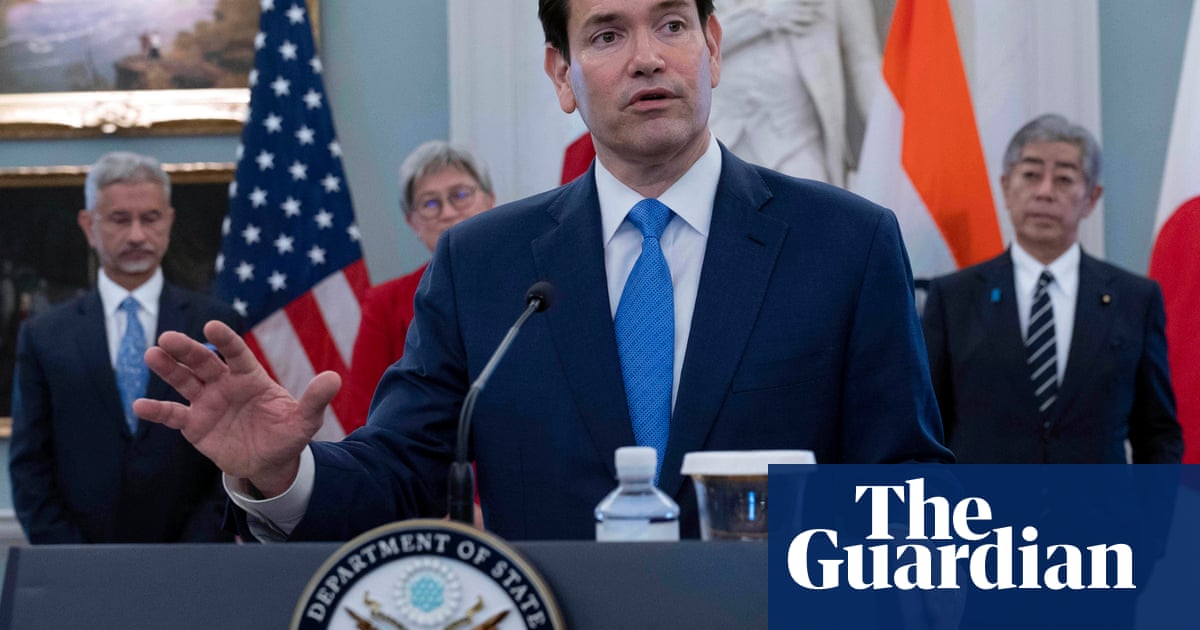The United States, Japan, India and Australia have pledged to work together to ensure a stable supply of critical minerals, as worries grow over China’s dominance in resources vital to new technologies.
The four countries said in a joint statement that they were establishing the Quad Critical Minerals Initiative, aimed at “collaborating on securing and diversifying” supply chains.
They offered little detail but made clear the goal was to reduce reliance on China, which has used restrictions as leverage as the US in turn curbs its access to semiconductors and threatens steep tariffs.
China holds major reserves of several key minerals including the vast majority of the world’s graphite, which is crucial for electric vehicles.
US secretary of stateMarco Rubiowelcomed his counterparts from the so-called “Quad” grouping to Washington on Tuesday in a shift of focus to Asia, after spending much of his first six months on the wars in Ukraine and the Middle East and on president Donald Trump’s domestic priorities, such as migration.
In brief remarks alongside the other ministers, Rubio said he has “personally been very focused” on diversifying supply chains and wanted “real progress”.
In a joint statement, the Quad countries said: “Reliance on any one country for processing and refining critical minerals and derivative goods production exposes our industries to economic coercion, price manipulation and supply chain disruptions.”
The ministers were careful not to mention China by name but also voiced “serious concerns regarding dangerous and provocative actions” in the South China Sea and East China Sea that “threaten peace and stability in the region”.
Rubio had welcomed the Quad foreign ministers on 21 January in his first meeting after Trump’s inauguration, seen as a sign the new administration would prioritise engagement with like-minded countries to counter China.
But to the surprise of many, China has not topped the early agenda of Trump, who has spoken respectfully about his counterpart, Xi Jinping, andmoved to ease tensions in a wider trade warbetween the world’s two largest economies.
Trump is expected to travel to India later this year for a Quad summit.
Both the Indian and Japanese foreign ministers said they wanted the Quad to focus on a “free and open Indo-Pacific” – a phrasing that is a veiled allusion to opposing Chinese dominance in Asia.
“It is essential that nations of the Indo-Pacific have the freedom of choice, so essential to make right decisions on development and security,” Indian foreign minister Subrahmanyam Jaishankar said.
At Jaishankar’s urging, the Quad also condemned a Mayattack on the Indian side of Kashmirthat killed mostly Hindu civilians and called for “the perpetrators, organisers and financiers of this reprehensible act to be brought to justice without any delay”.
In a key concern for Japan, the Quad condemned North Korea for its “destabilising launches” of missiles and insisted on its “complete denuclearisation”.
Despite common ground on China, Quad members have differed on other hotspots, with the joint statement not mentioning Ukraine or Iran.
India has maintained its long relationship with Russia despite the invasion of Ukraine, while both India and Japan also have historically enjoyed cordial ties with Iran.
